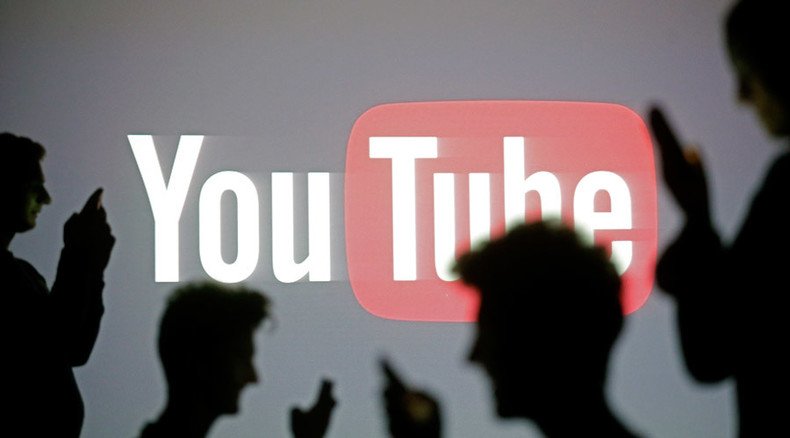YouTube and the art of investigation

We increasingly hear people talk about "researching" things. And increasingly, by "research" they mean watching YouTube videos. While YouTube can help you get your foot in the door to new subjects, it is essentially entertainment. You still have to do your research.
I use the Internet. I use it a lot. I know it’s monitored by the NSA and the Pentagon. But that inherent creepiness is offset for me by historically unprecedented access to stuff I would otherwise never know. So I’m not here to decry this window of opportunity to access huge amounts of information.
I do not think that books are dead – although I think the kind of books we will tend to buy will change. And nor do I think that radio or films will ever completely go away, although their formats and platforms will evolve.
White House explored ways to bypass smartphone encryption – memo
http://t.co/yUOhU5xP3Hpic.twitter.com/s9A7gfNDsl
— RT America (@RT_America) September 25, 2015But what I see is that with the advent and preeminence of YouTube – a format which brings together facets of all the aforementioned media and places them within the creative reach of anyone with fingers and some time on his hands – the popular conception of what constitutes actual research is undergoing a subtle and unhelpful change.
It used to be that research of any kind involved going out into the field. At the very least it required you to leave your house. You had to go to the library or the Town Hall and deal with real people and books. I’m not suggesting that the results were always superlatively brilliant. I am suggesting that the process was inherently active. It required effort.
It was regarded as a form of work.
I use YouTube. I think it’s an interesting and useful resource. It is also the second-largest search engine on the Internet, and owned by the largest search engine on the Internet. Anything you want to know from how to make Microsoft Word do something it is not naturally able to do through to how to skin a hedgehog can be learned. And that’s all great. But the medium is inherently passive.
Much of the time, it doesn’t need to be any more engaged that this. I need to know which keys to hold down to take screenshot of a user-defined region of my desktop and some twelve-year old in Michigan I will never meet instantly tells me.
Thanks, kid.
But just because I can passively consume this – and many other – factoids, it doesn’t mean that I am absolved of any obligation to go out and do stuff in the real world.
In the circles I move in people are engaged with what’s happening in the world. Politically they, like me, are somewhere between suspicious of the establishment and utterly contemptuous of it. And within my communities, links to strands of the endless tsunami of information available on YouTube are passed around at furious speed as exposé is piled upon exposé.
And this, to me, is great – at least up to a point.
So I hope I have been clear: the Internet is a great resource (NSA spying notwithstanding) and YouTube is a great resource. I’m not about to launch into a pro-Luddite whinge.
My concern, however, is that an increasing number of well-meaning people are confusing watching YouTube videos with something more substantive. They think it is research.
And while the YouTube genre allows the reporting of research which has been done by others to be accessed instantly by anyone with an Internet connection, the medium itself is primarily that of entertainment.
I am not decrying YouTube’s merits and power to influence. Many right and excellent subjects are given public exposure by means of YouTube.
Let’s take the case of the Hampstead school in London where the claim was that children had been abused systematically at the hands of a Satanic cult. After mainstream media fell into line with the establishment’s pronouncements and denied any existence of wrongdoing, the fact that these children’s testimonies are can be viewed on YouTube has meant that this topic has not gone away. YouTube means we can simply watch the children speaking for themselves. Most of us have children. We can judge as well as anyone when a child is making something up and when he is telling the truth no matter what those who claim to be authorities would have us believe.
Whereas prior to the Internet the pronouncements of the authorities in the Hampstead case would simply have become the accepted version, this is now not the case, and the question remains for many unanswered.
READ MORE: Exposing Daily Beast propaganda: 10 RT political virals the YouTube MSM can only dream of
And this would not be possible without YouTube, or something like it.
The culture of information and reliance upon authority is changing and YouTube plays an increasing role in that mix.
So popular suspicion of official lines has both driven and been driven by the creation of an expanding universe of politically damning information which ranges in quality from utter drivel through to excellent factual information.
And since the world is literally peppered with legitimate, unanswered questions and we have the means to challenge them publicly, nothing is off limits.
It is perhaps then only natural that eventually that most hallowed assumption of our modern world has come under scrutiny: the idea that the earth is a ball.
Today the movement of those openly challenging the Copernican model is growing exponentially. And YouTube has been at the centre of this movement.
I’m pretty alert to how much the system lies to us. But, frankly, I’d never thought too much about the shape of the earth.
I had become interested in the sky a few years ago and tried to learn something about what is going on up there, what the relationships are between the earth and the sun and the moon.
But my brain works in a particular way. I can only learn something I understand. And I can only understand something which makes sense. And since what I found in books didn’t make sense (it lost me at the claim the summer and winter come about because the earth is tilted – which makes no sense at all) I had been unable to get very far with it. But I was still interested.
I was unaware of the growing Flat Earth movement until a few months ago. A friend suggested I look into it. This is a good friend. He’s intelligent. I’ve known him for years. He didn’t seem to be having a nervous breakdown.
I said I’d look into it and he duly sent me a few YouTube links.
While the subject itself was challenging to long-held assumptions – and therefore interesting on that basis – equally interesting were the dynamics and of both the presentation of this radical shift in worldview and the reactions to it.
#McAfee launches 2016 bid, says politicians ‘illiterate’ on technology
http://t.co/bcdFnnvPscpic.twitter.com/LIaWPzvKyR
— RT America (@RT_America) September 9, 2015Firstly – and this is not a criticism – is the fact that certain intellectually active members of generation Web 2.0 have simply rediscovered the past. Young men, themselves born in the 1980s, have gone back and reconsidered arguments and evidence from such people as the Victorian inventor Samuel Rowbotham who was active more than 130 years ago.
Another point of interest was how battle lines formed across the debate. On the one hand are the new pioneers – those who are essentially very good at presenting in accessible, modern terms ideas which had been all but killed off by the time they were born. Then there are the enquirers: those who – presumably, like me – had not been able to understand mainstream science’s explanations of tilted balls spinning very fast governed by a magical force so strong it holds the seas to the surface but so weak birds can fly about in the sky. Then there are the supporters of modern science who appear affronted to the point of apoplexy that doubt should cast in this time of NASA footage and Hubble telescopes upon something which is so universally accepted.
Tempers rose, allegiances formed, accusations were hurled and insults traded and, before long, within the camp of those generally accepting of the neo-Victorian view, accusations of "shill"and "troll" against those judged to be renegade or counter-revolutionaries to the movement became as commonplace as were condescension and name-calling from the camp of those who hold to the present-day view.
YouTube provided a wonderful platform on which to listen to various points of view – be they for, against, or merely lost. It was all new to me. I sucked it all in. And I thought about it for a while.
And then I did my research.
I read Samuel Rowbotham’s book Zetetic Astronomy. And then I read another couple of books by some men who have been dead for a while. I went away and learnt something about the principles of perspective. I formulated some simple tests I could do myself in the real world involving actual land and water to demonstrate to myself whether I am on a spinning ball hurtling endlessly through space or whether I am on a fixed plane at the center of things – objective, repeatable tests.
I did those tests. I formed my conclusions. And then I packed that particular question away in a box marked "done."
But I realized that for many on both sides of the debate – and the reason perhaps why passions rose so quickly – is that while the watching of YouTube videos has exposed the internet generation to old ideas it would never otherwise have encountered, mere watching has become synonymous with actual research.
But watching YouTube videos isn’t research. It’s entertainment.
There’s nothing wrong with being entertained. There’s nothing wrong with being entertained on subjects which are difficult, disturbing, or even paradigm-breaking as long as you then go and do your research.
But YouTube is what it says it is: it’s TV. It isn’t reading and thinking and doing.
And while the consumption of the research of others in an entertainment format can be a great precursor to actual research, it is no substitute for it.
The statements, views and opinions expressed in this column are solely those of the author and do not necessarily represent those of RT.













